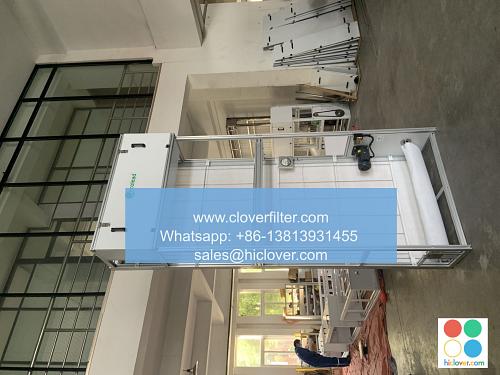Air Filter Certifications and Climate Change: How You Can Make a Difference

As the world grapples with the challenges of climate change, air pollution, and sustainability, it’s essential to understand the role of air filter certifications in mitigating these issues. In this article, we’ll explore how air filter certifications can contribute to a reduced carbon footprint, improved indoor air quality, and a healthier planet.
##
Understanding Air Filter Certifications
Air filter certifications are standards that ensure the quality and performance of air filters in various applications, including residential, commercial, and industrial settings. These certifications are issued by reputable organizations, such as the American Society of Heating, Refrigerating, and Air-Conditioning Engineers (ASHRAE) and the International Organization for Standardization (ISO). By choosing certified air filters, you can trust that they meet specific standards for filtration efficiency, airflow, and pressure drop.
##
The Impact of Air Filters on Climate Change
Air filters play a significant role in reducing greenhouse gas emissions and mitigating the effects of climate change. Here are a few ways air filters can make a difference:
* Energy Efficiency: By using high-efficiency air filters, you can reduce the energy consumption of your heating, ventilation, and air conditioning (HVAC)carbon emissions.
* Improved Indoor Air Quality: Air filters can remove particulate matter, volatile organic compounds (VOCs), and other pollutants from the air, creating a healthier indoor environment and reducing the need for air purification systems.
* Reduced Waste: Choosing air filters with longer lifetimes and higher filtration efficiency can reduce the amount of waste generated by disposable filters.
##
Application Areas for Certified Air Filters
Certified air filters have a wide range of applications across various industries, including:
* Residential Buildings: Improving indoor air quality and reducing energy consumption in homes.
* Commercial Buildings: Enhancing occupant health and productivity while minimizing energy costs.
* Industrial Settings: Protecting equipment and personnel from hazardous airborne contaminants.
* Transportation: Improving air quality in vehicles and public transportation systems.
* Healthcare: Maintaining a sterile environment and reducing the risk of hospital-acquired infections.
##
Making a Difference with Certified Air Filters
To contribute to a more sustainable and climate-resilient future, consider the following:
* Choose certified air filters that meet or exceed industry standards for filtration efficiency and airflow.
* Regularly maintain and replace air filters to ensure optimal performance and minimize waste.
* Support manufacturers that prioritize sustainability and environmental responsibility in their products and operations.
* Encourage policy makers to implement stricter regulations on air filter standards and emissions reduction.
By working together to promote the use of certified air filters and adopting eco-friendly practices, we can reduce our collective impact on the environment and create a healthier, more sustainable future for generations to come. It seems like you forgot to include the actual prompt. Could you please provide more details or clarify what you need help with? I’m here to assist you!

